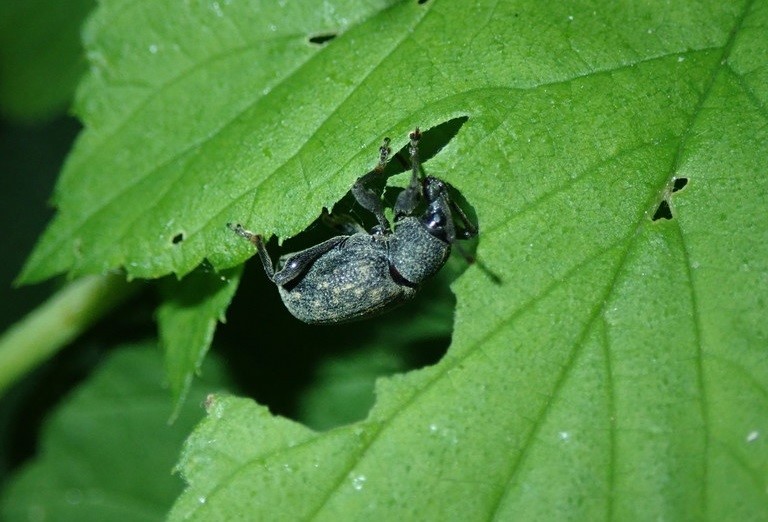Caneberry growers have a new tool for controlling root weevils with the supplemental label approval of cyantraniliprole, sold as Exirel® by FMC. There are several species that affect blackberries, raspberries and other caneberries, belonging to the genus Otiorhynchus or Sciopithes. All are a major headache for caneberry growers.

Photo: Whitney Cranshaw, Colorado State University, Bugwood.org
The larvae of the root weevil causes the most damage, completely consuming small roots and damaging the bark and interior cortex of larger roots. Plants are eventually unable to take up water, and they ultimately wilt and die. Because caneberries are a high-value crop requiring a one- to-two year investment before yielding a harvest, the loss of plants can be a significant cost. In addition, the adult weevils can contaminate the berries if the field is machine harvested.
Because the larvae live solely in the ground, they are difficult to kill. Foliar sprays such as cyantraniliprole target adult weevils, and are often applied at night, since the adults are nocturnal. Like growers of other crops, blackberry and raspberry farmers have to stay one step ahead of the buildup of resistance to pesticides and always need new solutions to rotate into their programs. IR-4 was asked to evaluate cyantraniliprole residue on caneberries in order to apply for US EPA registration on this crop.
Researchers evaluated plots of caneberries using the DPX-HGW86 10SE formulation of cyantraniliprole at a rate of 0.834 lb ai/gal in 20-100 gal/acre. The application included a non-ionic surfactant or organosilicone surfactant at the labeled rate. Three foliar applications were made at five-day intervals.
When berries were harvested and the residue levels of cyantraniliprole were determined to be below the maximum residue levels allowed by EPA, leading to the supplemental label approval for use on caneberries.
Cyantraniliprole belongs to FRAC Group 28, and it can be rotated in an integrated pest management (IPM) program. Besides root weevils, the supplemental label allows applications for controlling or suppressing spotted wing drosophila (SWD) in caneberries, SWD and thrips in strawberries, coffee berry borer in coffee, and a number of cranberry insect pests: cherry fruitworm, cranberry fruitworm, black-headed fireworm and Sparganothis fruitworm.
PR# 11046 Caneberry (Adult Root Weevil)
Robin Siktberg is a custom content editor at Meister Media Worldwide; rasiktberg@meistermedia.com.
